The lack of an airport has saved this Greek island nirvana
The lack of an airport means this legendary spot remains largely untouched by time — and that’s just perfect when it comes to getting a table at a restaurant.
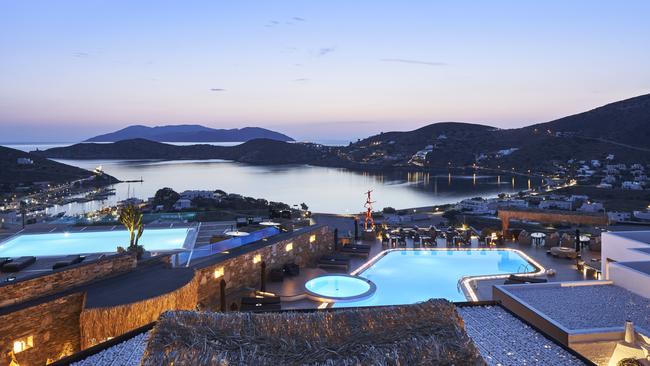
You can now listen to The Australian's articles. Give us your feedback.
Lying within Greece’s glorious Cyclades archipelago, the island of Ios is steeped in myth and history. At its northern tip, a mass of stones piled high above iridescent blue seas marks the place where the ancient poet Homer is believed to be buried. On its western side, unearthed clay and stone walls form the outline of the extraordinary Skarkos settlement, which dates back to the third millennium BC.
In our Australian household, the legends of Ios are far more contemporary, drawn from the time my husband spent there in the 1970s. Over the years he’s regaled our sons with tales of a rugged island where donkeys were the only mode of transport. A paradise where he dived from clifftops into the clear waters below. A meeting place where he and a posse of newfound friends played nude volleyball on golden sands, channelling the spirit of ancient Greek gymnasiums – or perhaps simply embracing the hippie vibes of the time.
Disembarking from a cavernous Blue Star ferry on Ios’s shores almost 50 years later, my husband is keen to show me his nirvana but fretful about the changes mass tourism may have wrought. He’s quick to comment on the handful of shops and hotels now clustered beside the island’s small port, and points with dismay to the scattering of cars traversing roads that were once the sole domain of donkeys.
But as a newcomer to Ios I see only its rough-hewn beauty and simple charms. Soaring brown hills studded with rough stones rise beside us and the whitewashed buildings of the island’s tiny hilltop capital Chora gleam in the sunshine.
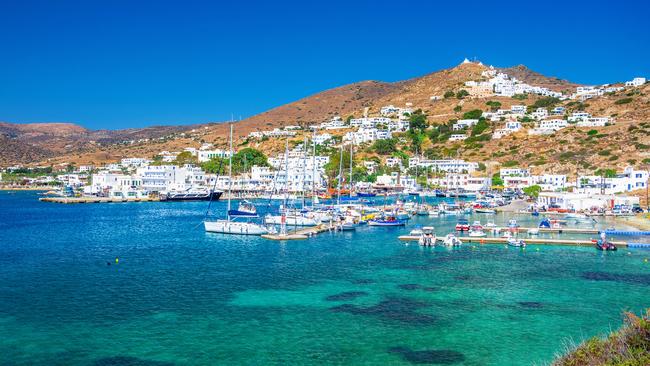
Just 18km long and 10km wide, Ios is home to about 2200 people, most living beside the island’s magnificent harbour or in Chora, which sits high above the port. Only a few roads straddle the island’s mountainous spine, providing a spectacular route to dramatic clifftops and coveted beaches, although some prized strips of sand can be reached only by water.
It’s late May when we visit and Greece’s summer tourist season is yet to kick off. In the narrow laneways of Chora, business owners are repainting the white mortar between crazy stone pavers, preparing for the thousands of feet that will soon pound the alleys.
While many locals we chat to are pleased to learn my husband visited their island so long ago, some are quick to note that Ios has changed. Tourism, they tell us, has brought too much pressure, particularly in the prime months of June and July when a younger party-hungry tribe descends, filling the clubs of Chora by night and the sun loungers that line Milopotas Beach by day. Others are more circumspect, declaring that the lack of an airport has saved the island from the fate of nearby Mykonos and Santorini, where runways provide easy access for hordes of visitors.
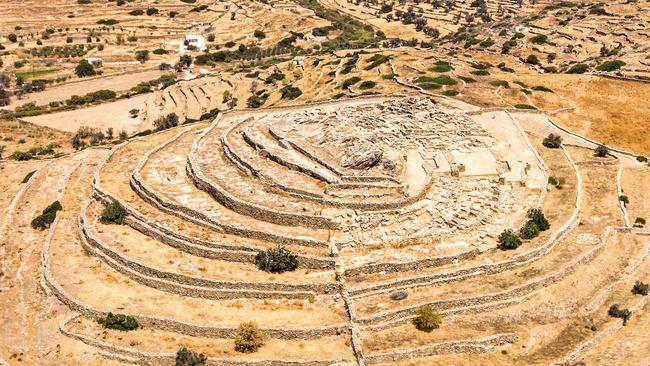
Regardless of what summer may bring, Ios proves a peaceful paradise in the final days of spring and the sun god Helios smiles on us, delivering blue skies and warm days as we explore the island. Indeed, there’s no other car to be seen as we drive the picturesque 7km road from Chora to Ios’s northern cape to stand at Homer’s tomb and gaze across the fabled waters of the Aegean towards the island of Naxos.
Nor are there any other tourists to be found at the ancient settlement of Skarkos, which stretches across fertile lands overlooking the harbour. Unearthed only 40 years ago, the site’s significant discoveries include two-storey buildings that provide new insight into the sophisticated architecture and lifestyle of the Cyclades in the early bronze age.
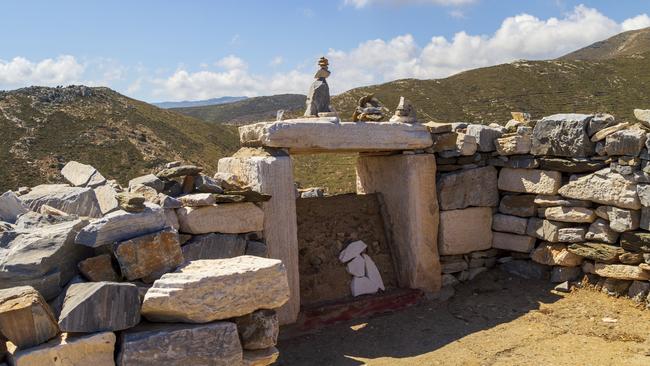
A May visit to Ios also means there’s little competition for restaurant tables. On our first night we head to the popular portside eatery Ithaca to feast on seabass ceviche. The next day we take a prime seat beside the ocean at Drakos tavern, a Milopotas Beach institution, and gorge on fresh octopus and stuffed zucchini flowers. Conveniently, Ios’s top dining option – the award-winning Grandma’s Restaurant – is located within our hotel, Liostasi, owned by the local Denaxas family for almost 30 years. Offering 28 rooms terraced across the steep hillside between the port and Chora, Liostasi blends a modern minimalist aesthetic with the carefree spirit of Ios to create a fabulously relaxed luxe experience. Throughout the boutique property, monochromatic decor sits side-by-side with rustic stone paving and dry rock walls that mirror the island’s natural assets, while decorative fringes of dried grasses echo the thatched roofs of the historic windmills still visible around Chora.
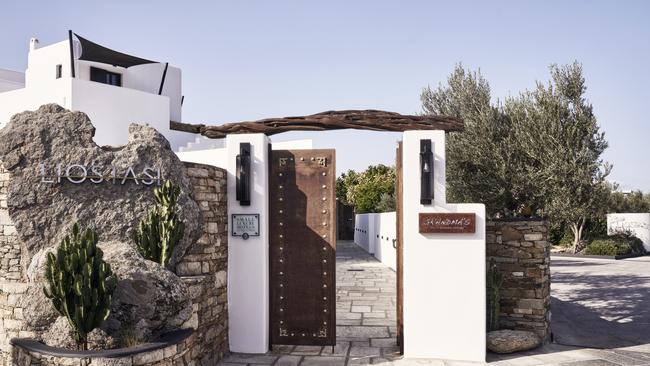
Our junior suite is a chic space with a deep balcony overlooking the shining harbour; a panoramic view that also dominates Liostasi’s stunning pool terrace. Artistic touches can be found everywhere, including on the terrace where a striking 7m-high red sculpture of dancers by artist Kostis Georgiou reaches skywards and words from the prologue of Homer’s Odyssey are etched around the pool’s perimeter.
At night, the poolside Grandma’s Restaurant offers its acclaimed menu, featuring fresh pasta and seafood as well as the best dish I eat on Ios, a superb baklava made with pistachio mousse and praline. Each morning we find Grandma’s overflowing with breakfast delights, from freshly baked pastries and cakes to local cheeses and a creamy yoghurt so thick you can stand a fork in it.
Our enjoyment of Ios’s food motivates us to visit the island’s Diaseli Cheesery, a 20-minute journey that takes us so high we find ourselves driving beside a raptor hovering above its prey in the valley far below. Perched on the mountainside, Diaseli delivers a delectable range of cheeses and homemade treats such as fig jam as well as a fascinating insight into the island’s history, compliments of Eleni Tasiakou, whose husband Dimitris Haros is a fifth-generation cheesemaker.
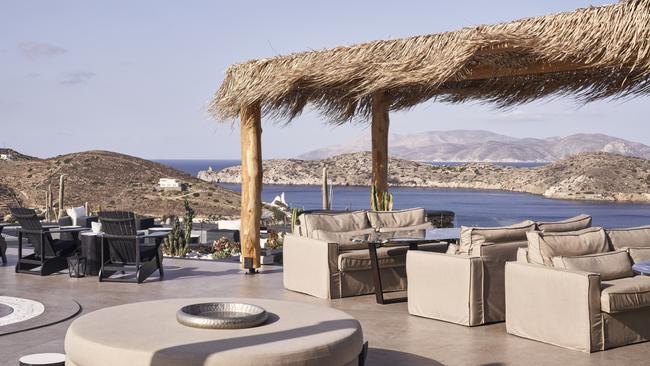
As we tour the operation, Eleni explains that change has come slowly to Ios. It was only when the first road to the island’s south coast was built 15 years ago that Dimitris’ father stopped using his donkey to transport his wares to the port.
Other parts of Ios remain untouched by time. When I divulge my husband’s beach volleyball antics to one of Liostasi’s spa team, Viktoria, she grins and tells me the legendary stretch of sand, Kolitsani, remains a nudist beach still only accessible by foot. “One of my friends was there yesterday and there were just two other people on the beach,” she says. “She loves it. It’s just so beautiful and free.”
In the know
Ios can be reached by ferry from Greece’s mainland port of Piraeus as well as nearby islands.
Liostasi is a member of Small Luxury Hotels; from €206 ($340) a night for a Panoramic Seaview Room, including breakfast.
Libby Moffet travelled at her own expense.
If you love to travel, sign up to our free weekly Travel + Luxury newsletter here.

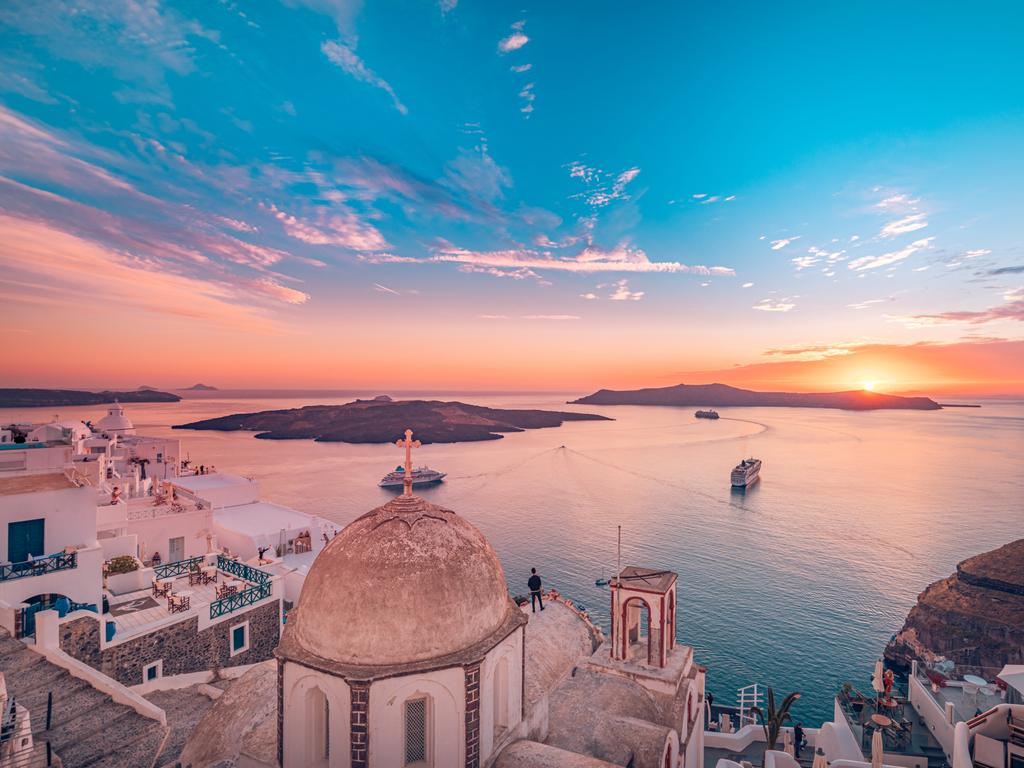

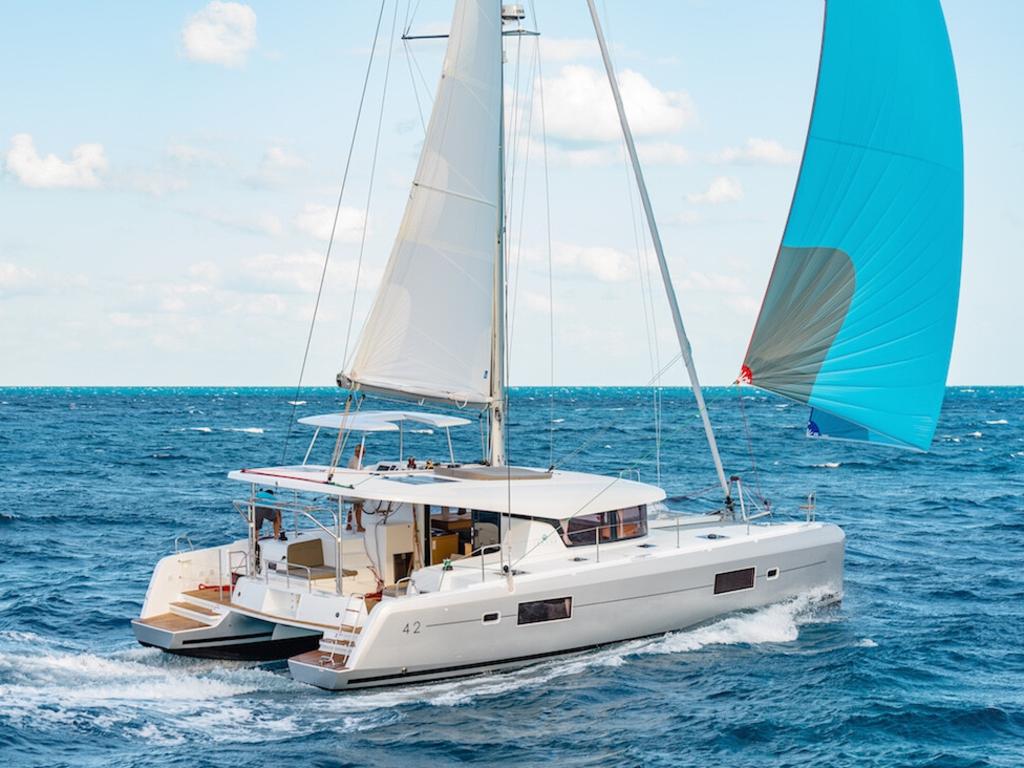

To join the conversation, please log in. Don't have an account? Register
Join the conversation, you are commenting as Logout